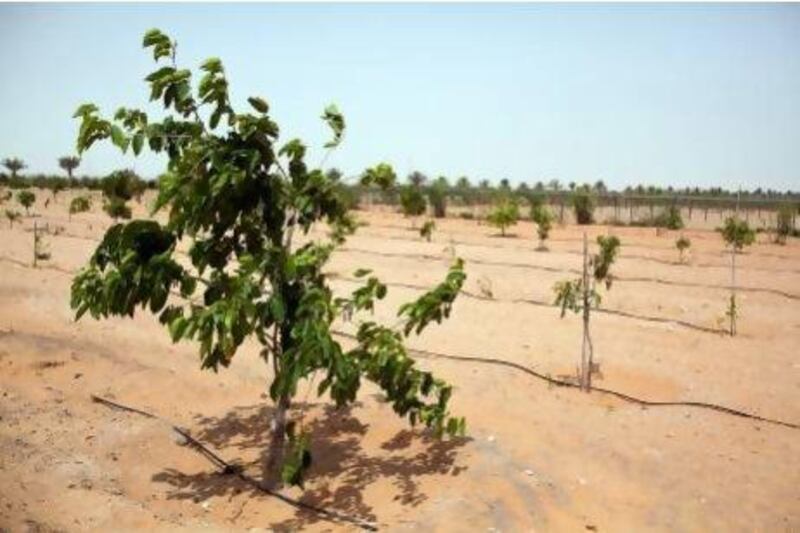DUBAI // Agriculture in the UAE makes "no sense at all", experts say, as it contributes less than 1 per cent to the economy while using more than 60 per cent of the country's water.
Producing just a kilogram of steak requires 15,000 litres of water. Yet only 1 per cent of the world's freshwater is available to be used, and only 1 per cent of that is in the GCC.
"Demand is increasing for water-intensive forms of food," said Nicholas Lodge, an agricultural expert at the Abu Dhabi consultancy Clarity.
"The water situation is fragile and a lot of freshwater is unavailable because it is hundreds of kilometres under the earth. There is no practical way for us to access all of the world's freshwater.
"And aquifers can become saline by over-extraction. They will replenish but it may take generations."
Mr Lodge was speaking at the Agribusiness Outlook Forum, part of the region's largest agricultural trade show, which began in Dubai yesterday.
According to the Food and Agriculture Organisation, a UN agency, the UAE lost 42 per cent of its renewable water resources between 1992 and 2007, dropping from 72,000 litres per person per year to 42,000.
"Water scarcity is very important," said Dr Mohamed Amrani, the director of research and innovation at the International Centre for Biosaline Agriculture in Dubai. "It's an issue in most countries in the Middle East, North Africa and the GCC. The amount of water available per person is continuing to decline and it is a major constraint to food production."
In the GCC, up to half the available freshwater is used for irrigation. Elsewhere in the Middle East and North Africa that figure is as high as 85 per cent.
"There are massive losses and we're putting more strain on our system because we use water as if it were abundant, readily and cheaply available, which is the exact opposite of the case."
According to the Organisation for Economic Cooperation and Development, 47 per cent of the world's population could be under severe water stress by 2050 - up from 44 per cent in 2005.
"$100 billion [Dh367bn] is estimated to be spent on desalination investments across the GCC from 2011 to 2016," said Mr Lodge. "A lot of that water will end up being used in agriculture but we are in a situation where we use water in agriculture when it makes no sense at all.
"We must start to move away from wasting our limited resources and divert that to more productive things."
The GCC must now look to maximise its water productivity by using alternative water resources such as treated wastewater and saline water in agriculture.
"We have to use all non-conventional water resources," said Dr Amrani. "Most GCC countries have saline groundwater, so it's important to take advantage of this water without affecting the environment."
He said new technologies, such as hydroponics, could be cheap and efficient if put to good use.
"We have a lot of renewable energy here so we can recycle the water in greenhouses for instance," he said.
"We're trying to develop some packages for different countries to improve irrigation systems, and I believe we can create an agriculture that can be applied in these climatic conditions."






